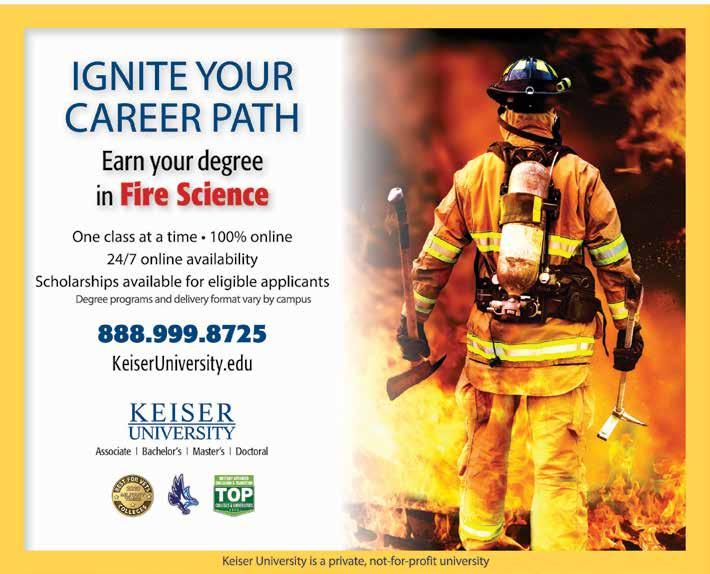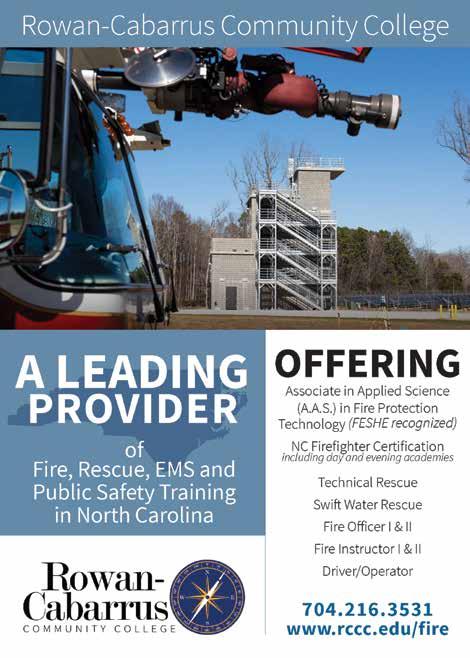
5 minute read
Our Staffing Problem Is Actually A Culture Problem
Aaron Dix, Executive Director, SCEMS Assoc.
While Covid-19 created fissures in our departments’ foundations, the pandemic only exposed the deeper tectonic breaks already present in the culture of our field.
Advertisement
Many EMS and fire agencies throughout the nation are hemorrhaging employees. Nearly all sectors of our economy are attracting current and potential members away from our organizations.
So, what are we doing about it?
To fill these significant vacancies, many of our agencies have developed non-traditional recruitment initiatives, such as high school career centers and boot camps, aimed at training and employing non-certified members of the community in a little as eight weeks. While these programs have successfully recruited new team members, a severe shortage of experienced providers means that these young recruits lack access to the practical hands-on training and mentorship only seasoned field crews can provide.
The experienced team members that stay on feel the weight of their workload grow exponentially. Senior providers are understandably stressed out due to these staffing issues. Their palpable frustration negatively affects the organization’s overall culture, resulting in an unwelcoming experience for new team members. The new members then choose to seek work elsewhere, and the hiring spiral continues.
The newest trend to stop the spiral of openings is increasing wages to be higher than neighboring departments. This is causing a hiring competition—one department raises salaries 8%, only for another department to immediately raise salaries 15%. While EMS and fire are finally
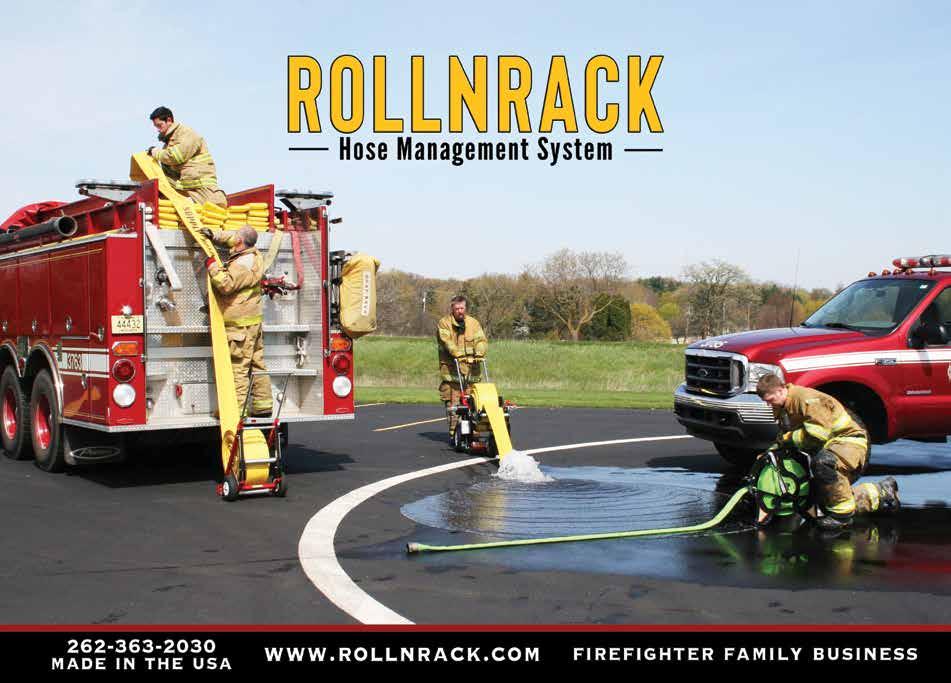

receiving the higher-end salaries they deserve, the financial race to the top is not sustainable. It also does not correct the underlying reasons for the hemorrhage of quality and experienced members. The spiral will continue; it just now costs more.
Our current solutions to our staffing problems are inadequate and do not address the underlying cultural issues.
To fully understand how we got here, we must look at how we have historically interacted with our workforce. For decades, everyone wanted to be a firefighter. Dozens, and in some cases, hundreds of people, applied for a handful of openings. The way we were doing things was sufficient; there was no impetus to change. How often has a supervisor or leader told a member, “If you don’t like it here, go somewhere else?” When we welcomed new members, we told them to be quiet, not to question, and to follow orders; in some cases, we hazed them. And if they did not like it, we told them to leave.
We can no longer afford to behave so badly. Believing that our strength lay principally in the notion of tradition, we stubbornly refused to listen to the concerns of our workforce. The firehouse and ambulance barn rules had openly disenfranchised certain population groups. Newer members are now demanding better from their organizations. To recruit a new generation of medics and firefighters, we must finally wake up to systemic issues in our culture.
How do we fix our cultures, hire and keep new recruits, and stop our valuable experienced team members from leaving?
First, we must show respect to all members of our teams from all corners of our society. Inappropriate racial, sexual, and anti-religious sentiments cannot exist in our stations. It should never have been tolerated, and it must stop immediately.
Second, stop diluting your teams. Colonel Charlie A. Beckwith, who created Delta Force, famously said, “I’d rather go down the river with seven studs than with a hundred shitheads.” Develop high-functioning teams. The teams might start small, but they will accomplish more than larger, more dysfunctional teams. A “pulse and a patch” mentality will only worsen staffing and degrade quality.
Third, stop looking for team members who are a “good fit.” Team members need to balance each other with their individual strengths and weaknesses.
Fourth, team members need to be heard and respected by their leadership. We must allow our teams to ask questions and offer solutions for their working environment. At Prisma Health EMS, we created a Unit Council, a formal team member advisory board governed by by-laws that provides input into decisions impacting their work.
Lastly, love your job. We have the tremendous responsibility to care for our communities during their worst moments. Real people, real families, are impacted by our decisions and actions. Few professions allow people to perform truly meaningful actions during a crisis. Our job is exciting, rewarding, and emotional. Excitement and passion are contagious, and there is no better recruitment tool than a team who loves what they do.
The fire and EMS industries did not suddenly wake up to a staffing crisis. We have been heading into this crisis for decades, and facing it has only now become unavoidable. We are challenged to fix our culture as an industry and in our individual departments. Only after we have made these adjustments will our staffing issues be corrected.
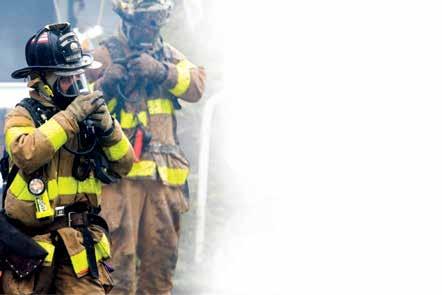
Aaron Dix, MBA, NRP,
is the Executive Director of EMS and Patient Flow for Prisma Health, Commissioner for Clear Spring Fire Rescue, and an Executive Board Member of the South Carolina EMS Association. Prisma Health operates a large EMS department providing 911, ALS, Mobile Integrated Health, Emergency Medical Dispatch, and Critical Care services throughout the Upstate and Midlands of South Carolina. Dix is a national speaker and has authored multiple articles. He can be reached at aaroncdix@gmail.com.
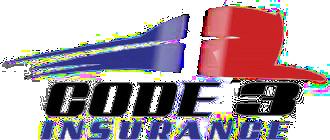
As a firefighter, you run into blazing fires to save us. Now it is time to let us help you! AS A FIREFIGHTER, YOU RUN INTO BLAZING FIRES TO SAVE US. Now it is time to let us help you!
If you’re diagnosed with a covered specified If you’re diagnosed with a covered specified disease (heart attack, cancer or stroke), we can help with your expenses. This way you can disease (heart attack, cancer or stroke), we can help with your expenses. This way you can concentrate on what’s more important — concentrate on what’s more important - your treatment, care and recovery! your treatment, care and recovery! SPECIFIED DISEASE: $5,000–$20,000
Specified disease: $5,000 - $20,000Specified Disease Benefit: Ages 16-74 Diagnosis Percentage of face amount is payable
Heart Attack Stroke
100% 100% Call today to speak with End-Stage Renal (Kidney) Failure 100% Major Organ Failure 100% Cancer your Benefits Counselor. 100% Coronary Artery Bypass Graft Surgery/Disease 25% 1-800-443-1186NO WAITING PERIOD — 12 MONTH PRE-EX
$5,000 = $69.60/yr, per employee/member $10,000 = $139.20/yr, per employee/member $15,000 = $208.80/yr, per employee/member $20,000 = $278.40/yr, per employee/member
